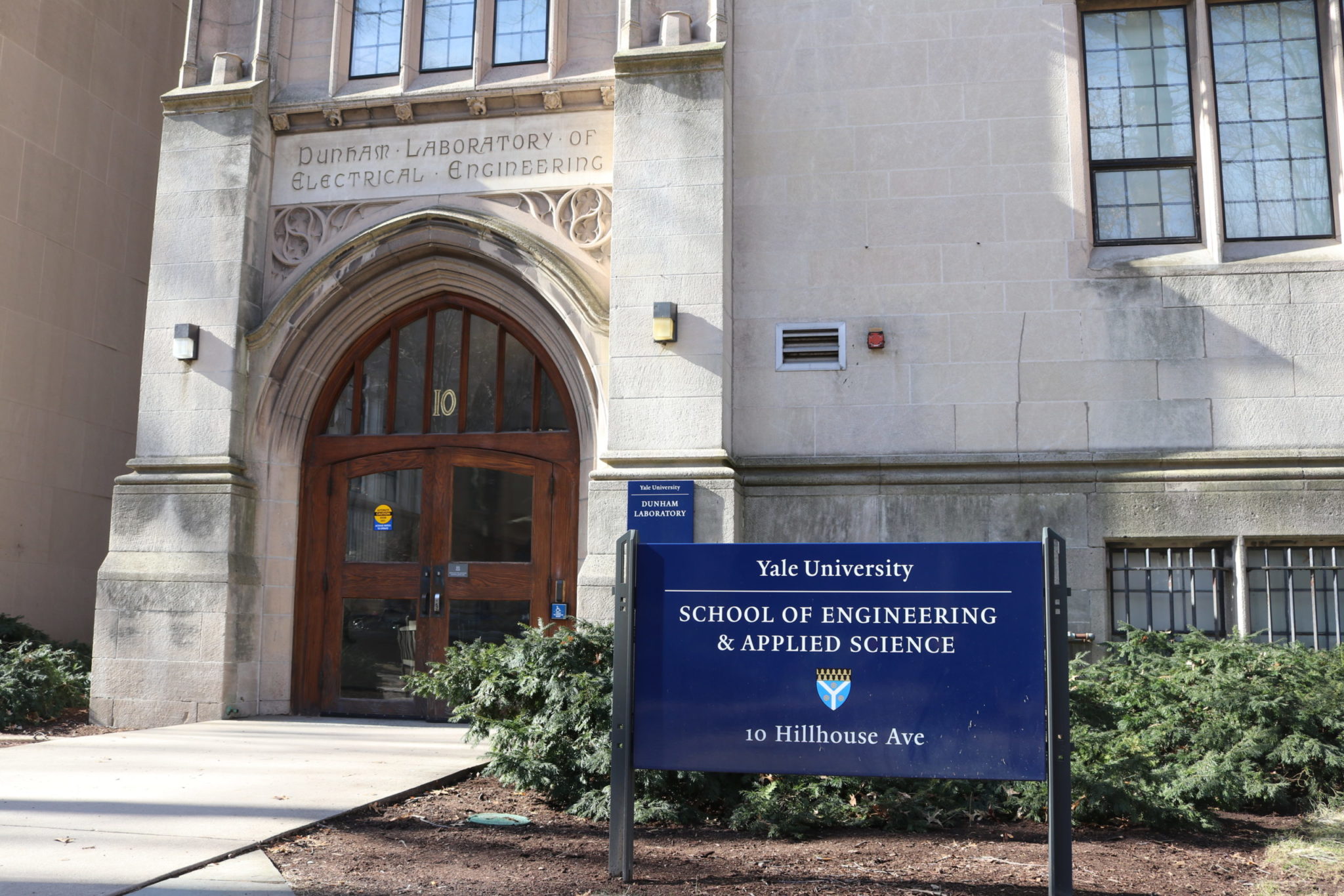Yale to offer first-in-the-nation joint engineering and medical school master’s degree
Yale’s School of Engineering & Applied Science and School of Medicine will offer a new master’s program in personalized medicine & applied engineering to combine engineering, robotics and medicine

Yale Daily News
This summer, five students will form the inaugural class of master’s students in personalized medicine and applied engineering, a new program offered jointly by the Yale School of Medicine and the School of Engineering & Applied Science.
The year-long master’s program aims to train future generations of engineers, robotics experts and doctors on the cutting edge of technology in the healthcare profession. Conceived by Lisa Lattanza, chair and professor of orthopedics and rehabilitation at the School of Medicine, the program came together as part of the larger strategic vision of the School of Engineering & Applied Science — which was recently restructured to be distinct from the Faculty of Arts and Sciences. The program will be co-led by Deputy Dean Vincent Wilczynski, Center for Engineering Innovation & Design Director James Tyler and assistant professor of orthopedics and rehabilitation Daniel Wiznia.
“We’re very excited that the program is happening,” said Steven Tommasini, an expert orthopedic spine surgeon and in rehabilitation at the Yale School of Medicine. “We should thank the engineering school and the medical school for offering their support and approving the program. Undergrads who I’ve had in class previously have asked about engineering programs like this, that Yale didn’t have something that was more industry and clinically related to biomedical engineering, and so being able to fulfill that request for a lot of students, I think, is fulfilling for all of us.”
The idea first came to Lattanza when she was practicing medicine and realized that she could improve patient treatment by working in a 3D space with the help of engineering and computer programming, which allowed her to better visualize breaks or congenital orthopedic malformation. In trying to do so, she realized that neither she nor the engineers she was working with had a concrete understanding of the other discipline, prompting the idea of the joint degree program.
The program is slated to begin this summer with the accepted students undertaking a summer session with a clinical immersion where they will spend time in clinics, hospital wards and operating theaters to learn from experts in the robotics, engineering and medical fields, according to Wiznia.
Wiznia added that each student enrolled will partake in a research thesis. The hope of the hands-on summer session is that the students will meet their research mentor who will guide them on a project that combines modern technology and medical practice.
“They will have that immersion to really learn about the clinical environment,” Wiznia said. “A big weakness for a lot of engineers is they never spend that time in [the clinical] environment. And then they will gain mentorship during that semester from … a faculty member, a physician who’s a real expert in 3D, personalized medicine, and they’ll work with that clinician and learn how they treat patients with this custom personalized treatment modality.”
In the fall, the engineering and medical school professors will co-teach classes, which will cover topics ranging from robotics and computer navigation in the medical field to constructing 3D models from high-resolution medical imaging.
Along with the research thesis required of every student, they will also have the opportunity to participate in an industry-sponsored project, according to Wiznia.
“Students can work with a medical device company that …really specializes in this field and the student will gain from that experience in terms of learning,” Wiznia explained. “They will have the opportunity to learn how this company conducts research and get to know the engineers on those teams.”
Students will also learn how to interpret FDA regulations and the medical device design process. According to Lattanza, the courses will include components focusing on virtual reality and artificial intelligence in the hope that students understand the intersection of personalized medical and surgical care with cutting-edge technology.
According to Wilczynski, the year-long master’s program is the first of its kind in the nation and will help to revolutionize the medical industry.
“This technology allows us to treat every patient as an individual to formulate a treatment plan, whether it’s a surgical plan or a medical plan that’s devised specifically for that individual rather than something that is more broad or general,” Lattanza said. “There’s multiple ways that this is going to impact patient care, whether it’s from the 3D cellular printing aspect or the individualized surgery or even projects that would involve better ways of educating our students and coming through either side on the medical school side or the engineering side in terms of accessing three dimensional anatomy.”
The School of Engineering and Applied Science will officially become a faculty distinct from the Faculty of Arts and Sciences on July 1, 2022.







